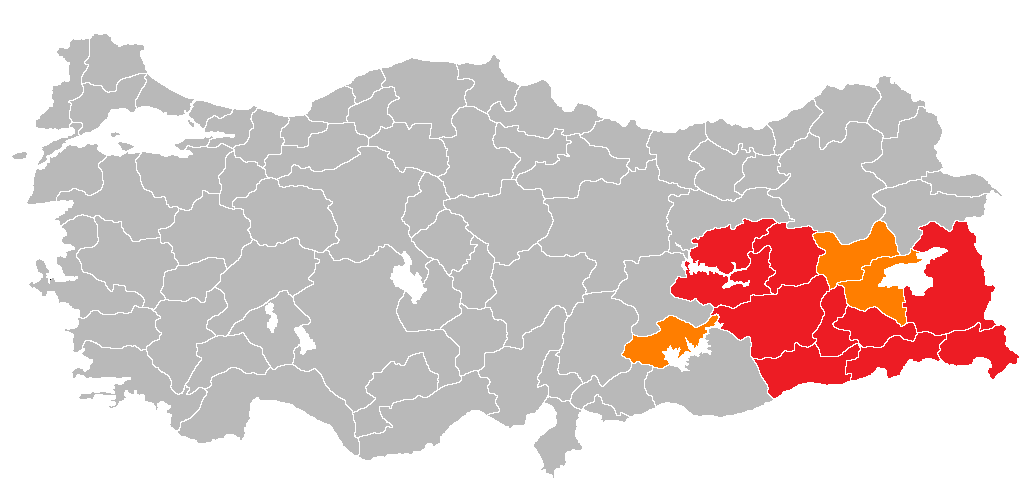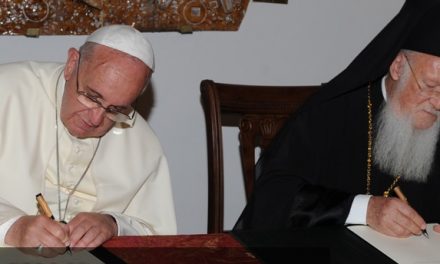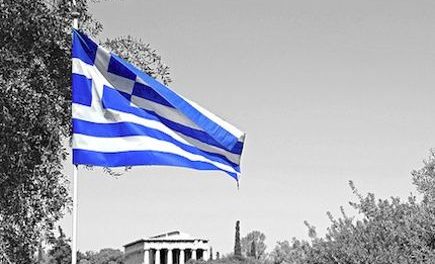By Özlem Albayrak, YeniSafak
News wires reported yesterday that Iraqi Parliament removed Kirkuk governor Najmaddin Kareem with a unanimous vote. Accordingly, Kareem gathered Kurdish members in the provincial council and decided to fly the flag of the Kurdistan Regional Government (KRG), or more clearly of Northern Iraq, in the city’s official institutions and organizations.
One of the reasons for the central Iraqi government’s removal of him was this one-sided decision. However, it was reported that the same governor previously passed a decision in Parliament to include Kirkuk and other controversial regions, which have a Turkmen population, in the Northern Iraq referendum, and told the Kurdish Parliamentary Speaker that “later we will kick them all out,” referring to the Turkmen and Arabs in the city. It is also alleged that the same governor deployed 200 armed Kurdistan Workers’ Party (PKK) members to a military base in Kirkuk. In other words, this is not the first time that the governor has done wrong to Haider al-Abadi’s central government in Baghdad. According to the quick response from Iraq yesterday, Erbil will not recognize the decision.
While the debate on the annulment of the referendum in Northern Iraq is still going on, I think this high tension clearly indicates the Erbil administration’s determination on the referendum. If it is true, the deployment of 200 PKK members in Kirkuk explains the reason of PKK’s so-called leader Cemil Bayık’s overt support of the referendum.
How on earth did it all come about?
How did the PKK, which considered and treated every Peshmerga as an enemy during its so-called fight against Daesh in recent years, decide to support to Barzani’s referendum? How did Israel make supportive statements about Northern Iraq’s independence referendum one after another, although it did not say anything about Daesh, which has been present in the region for years, while Syria was torn apart under the pretext of fighting Daesh, and ancient Syrian cities were destroyed? How did Washington prefer to support both sides of the dispute and voice murmurs, instead of clear statements, about the independence referendum which is poised to change the fate and map of the region, while it has presented PKK-PYD terrorists as actors in the Middle East and overtly supported them for years under the name of legitimizing “Kurds against Daesh.”
The equation is complicated and it is both hard and risky to guess how the region’s atmosphere will be after the referendum, for there are so many variables, actors and environmental / situational factors that are not considered. But the only thing that can be clearly seen in all this mess is this: The sectarianism did not work in the Middle East and now a plan is being tested through ethnicity. Salvos against Turkmen and Arabs in Northern Iraq, as well as the fact that Erbil’s Peshmerga received support by PKK members, with whom they previously wrestled, confirms this thesis.
Almost no state in the region, with the exception of Israel, supports the referendum of a Kurdish state. Apart from the central Iraqi government; Iran, of course, opposes this secession for sectarian reasons. The Syrian administration as well- whatever is left of it. Until now Turkey has followed a very moderate path. Although Turkey has maintained good relations with Barzani and always treated the Northern Iraqi government as an ally, it has sufficient reasons to oppose the division of Northern Iraq.
Five reasons to oppose the independence of Northern Iraq
First, our regional umbrella policy stipulates that the territorial integrity of all states must be protected. Iraq was not worse off in the Saddam era than it is now. Moreover, Iraq’s division into three regions after the invasion destroyed the Sunni-Shiite balance in the region. In other words, the U.S.’s invasion of Iraq has a big part in this horrific landscape of the Middle East, including Syria. Second, the Middle East does not really need micro states. The independence of Northern Iraq in a time when a PKK corridor has been created by the U.S. under our southern border means that two Kurdish players would stand side by side here. And even this alone would not be welcomed by a state which has spent decades struggling with a terrorist organization that takes strength from ethnic differences.
Third, even the PKK and Israel’s support for Northern Iraq’s separation from Bagdad requires thinking about the position dozens of times, instead of just twice. Fourth, the founding of dozens of small states in the Balkans after the fragmentation of Yugoslavia led to Balkanization, which created restless, ineffectual, remotely-manageable mini states that were closed to development. The independence of Northern Iraq can be considered the first step to Balkanization in the Middle East – which means nothing other than the deepening of chaos in the region and other bad consequences. Fifth, the emergence of Northern Iraq as an independent state may add ethnic conflict to the sectarianism in the region.
As a result, it seems impossible for Turkey to support Erbil for independence in this conjuncture. On the other hand, Turkey skidding to an ethnicity-based foreign policy in the region with Turkmen motivation means that it falling into the trap set. Without doing this, the matter must be resolved through moderation and diplomacy, otherwise harder days will be ahead, not only for Turkey, but for all the states in the region.



















